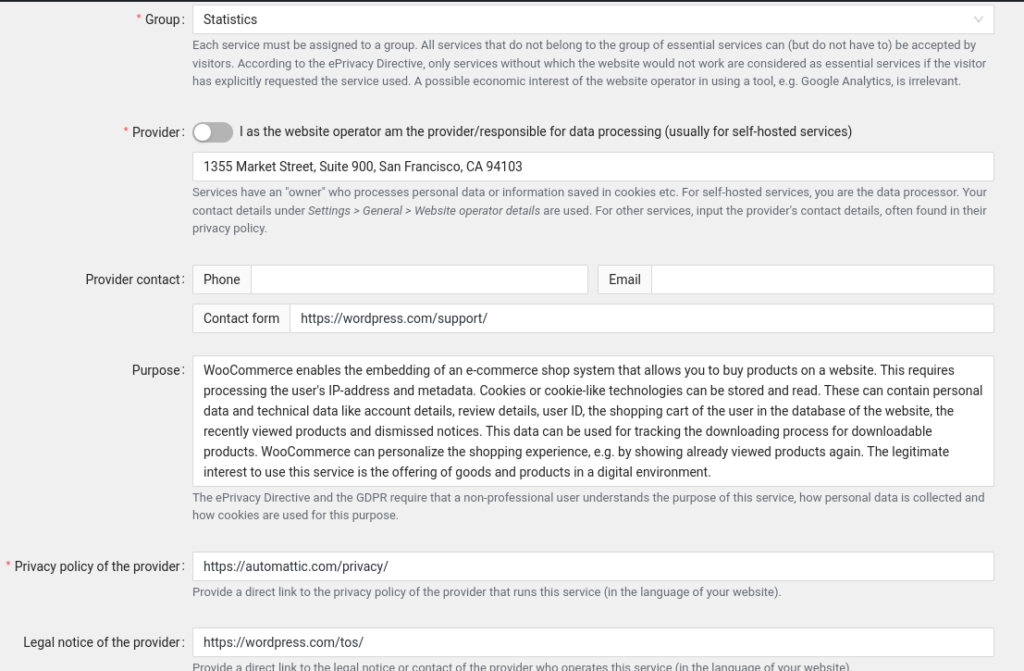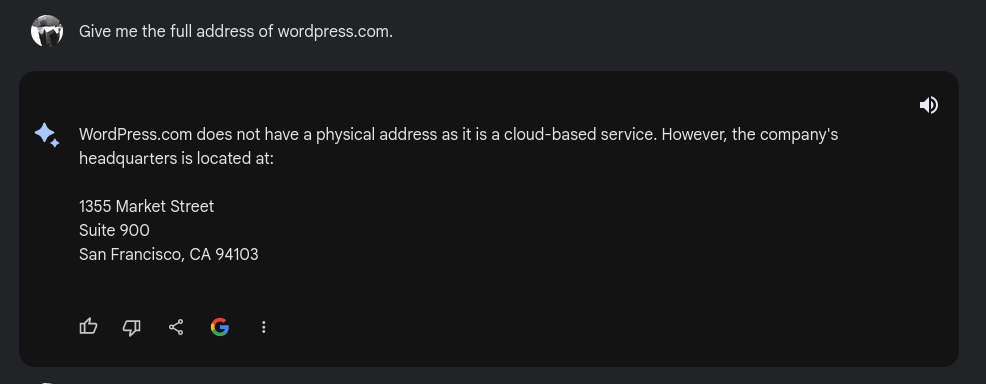Most amateur website operators have no idea how complicated the legal texts required for a website can become nowadays, especially when using a bunch of third-party modules.
You can still buy a privacy policy for a good sum from a legal service, and depending on the use of technologies, some manual work may still be necessary. But at the latest, when you have to integrate a Cookie Consent Banner into your website, you sometimes have to go into quite some detail.
I like to use the Real Cookie Banner (affiliate link) which also comes with some templates for popular services. But even these are not always complete. For example, it flawlessly recognizes the presence of WooCommerce and the associated cookies, but in my recent case, it couldn’t make sense of a statistics script apparently set by WooCommerce from the wp.com domain.

So, you have to create your own service and content blocker in the Real Cookie Banner, which includes, among other things, the contact details of the provider. And like anyone who has dealt with such things, it can be tedious to gather all this information. Especially, U.S. services are not always very generous, so you spend a certain amount of time scouring their websites and sometimes even using a search engine to obtain this information from other sources. Such tasks are just part of the craft for a one-man website builder.
By the way, in the agency environment, there are dedicated employees for such tasks in terms of work and competency division. In smaller companies, this is often the project manager. However, the project manager often has no clue about the technologies and third-party modules used by the product (show me a product manager who knows his product inside and out technically!). Therefore, he usually has to bother the developers and then goes on a search for legally relevant data for, for example, the cookie banner.
What? You’re a developer or website builder and have no idea what I’ve been talking about this whole time? Oh dear. It’s time to level up your game a bit, buddy.
Let’s get back to the tedious task of gathering legally relevant information from third parties for a cookie banner. So, you can click through the pages of the third party, with an uncertain outcome. Or… ta-da… you can call on an AI like Google Bard for help and simply ask the questions directly that are asked in the service form for the third party.

AI won’t make us website builders unemployed anytime soon, as our field, not only legally and technically, is getting more complicated, but it can save us a lot of time on research.
If you want to learn more about the Real Cookie Banner (affiliate link), like how to configure it for an unknown newsletter service, read How to Build a Newsletter Service that Complies with Islamic Principles and European GDPR Law at Islamic Marketplace.




0 Comments